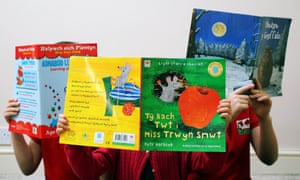Want a truly mind-expanding experience? Learn another language
More than half the world’s people speak more than one language, and I am one of them: I speak English, Welsh, French and Italian, and wish that I could speak more.
Being able to speak more than one language has opened up whole worlds of experience and understanding – so it is particularly saddening then to see reports that Brexit is putting British pupils off studying modern foreign languages at school. Some parents have even told teachers that it’s useless for their children to learn another language now that the UK is leaving the European Union.
Aside from the stupidity of this view, which seems to assume that all international travel and immigration to and from the UK will cease as soon as the Brexit drawbridge goes up, there is also the fact that having another language is never useless. As a Welsh speaker I have encountered a fair amount of linguistic ignorance: people saying that Welsh is pointless because it is a minority language that is rarely spoken outside Wales. I always tell them that speaking Welsh is what enabled me to become fluent in French after moving there when I was 18. Learning one language makes it easier to acquire others (the jump to Italian was less intimidating once I knew another romance language); you gain an understanding of linguistic structures and rules, of tenses and quirks and etymology. And your brain just seems to pick things up more quickly, though the crossed wires that can ensue can be amusing as a baffled look causes you to realise that you are not speaking the language you thought you were.
The spectre of imperialism is undoubtedly a factor in the number of British people who can’t speak another foreign language: some research has put it at a depressing 61%. We’ve all encountered those people on holiday who assume that everyone speaks English, who don’t even bother to learn the words for “hello” and “please”. I can’t relate to this misplaced sense of cultural superiority at all. But what I can relate to is the embarrassment that you have to face when learning a language. There’s even a phrase for it in Japanese: yoko meshi, meaning the particular stress that comes from speaking a foreign language. Literally translated, it means “a meal eaten sideways” – Japanese is usually written vertically (if, like me, you find this interesting, you should definitely pursue a foreign language).
In short, you have to be prepared to be thought a fool: something I believe many British people would rather avoid entirely, so they don’t even try. And yet anyone who has been a language learner has experienced this rite of passage, whether it’s my friend (languages spoken: Greek, English, French, Italian) telling a roomful of people, “I spent the weekend with my genitals” – a mix-up between the Italian words genitori (parents) and genitali; or me asking for condoms (préservatifs) on toast in a French brasserie while grasping for the correct word for jam.
There’s no doubt that learning a language is hard. Evidence shows that it’s great for your brain in myriad ways, from multitasking ability to Alzheimer’s prevention, but some people do find it harder than others. The fact that low-attaining pupils are not taking up languages highlights a flaw with the exam system, however, that needs to be corrected. Everyone can benefit from learning a language whatever their ability. It can feel like an uphill struggle at times, but the rewards make it worth it.
When you are in a conversation with someone and – finally – it clicks, and you realise that you are speaking another language well and with confidence: there is no feeling like it. Not to mention the opportunities that being a polyglot presents for friendship and seduction (the remain campaign missed a trick in failing to emphasise the influx of attractive Europeans Britain has received as a result of EU membership). Children from disadvantaged families are much less likely to take up languages at school than better-off pupils, but having a language gives you more opportunities in life and widens your horizons.
What I’d say to those pupils currently thinking about their options is: you will never regret deciding to widen your linguistic repertoire – if anything, it’s the other way round, and I have met many monoglots who have come to regret their decision to drop the study of a second language. Luckily, technology makes it easier than ever before to start learning in adulthood, but a head start is always beneficial. And if your generation ever makes the decision to rejoin the European Union, you’ll be at a great advantage. Why opt to see the world in a single dimension, when there are so many at your potential disposal? I promise, you won’t look back.
This post originally appeared on TheGuardian.com










